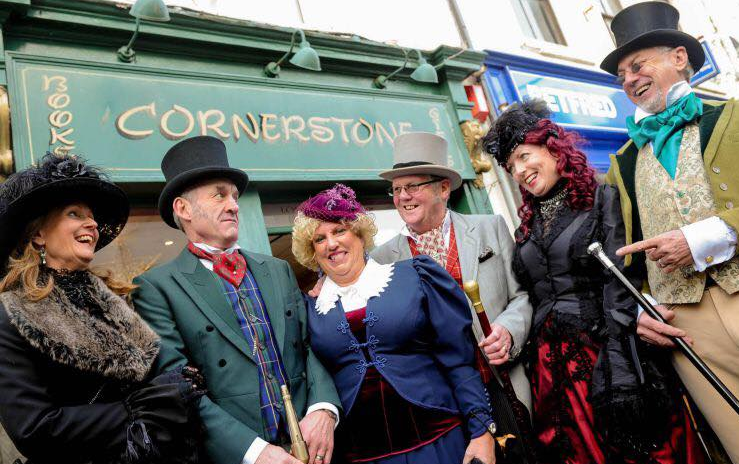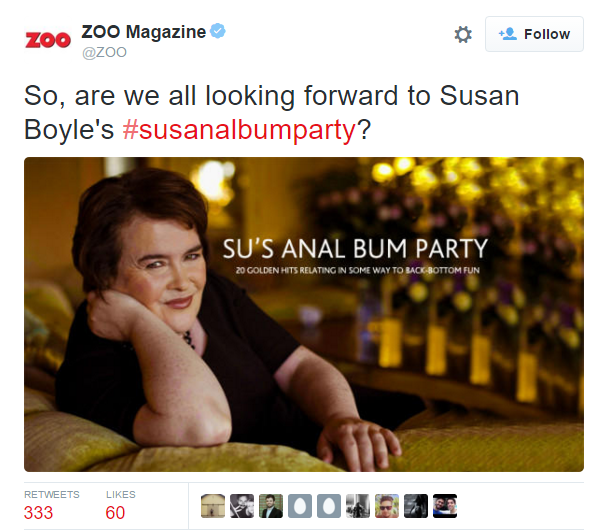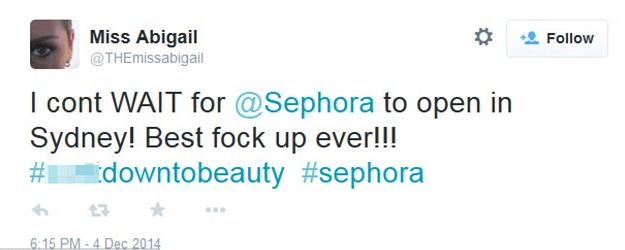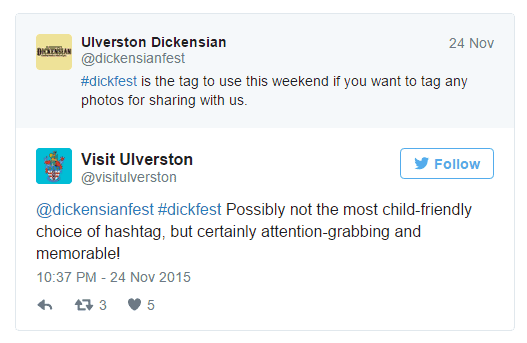When organisers of Ulverston Dickensian Festival in Cumbria wanted to promote their Victorian-style festival to the general public, they took to Twitter with haste. Advertised as “an amazing Dickensian festival and probably England’s finest Christmas Market”, the event attracts thousands of visitors each year, but the organisers decided they wanted to go one better in 2015.

One of the easiest ways to reach interested communities via the use of social media is with a Twitter hashtag, so Ulverston Dickensian Festival went with one sure to stand out from the crowd. The hashtag #dickfest was soon generating around the Twittersphere, and the seemingly innocent festival organisers gained mass coverage across the UK.
Unsurprisingly, #dickfest has attracted retweets, jokes and articles in the likes of the Metro and Yahoo News, helping the festival reach more potential customers than it would’ve done with a less, ahem… humorous hashtag. So was it a genuine accident, or just really clever social media marketing from the historic Cumbrian town?
The use of Twitter in promoting brands has exploded in recent years, and there have been a few notorious hashtag fails prompted reactions and publicity similar to the case of #dickfest. Which raises the question – when hashtags go wrong, do they really go right?

This is probably one of the most famous hashtag fails in recent memory. Back in November 2012, singer Susan Boyle was hosting a party for her latest album ‘Standing Ovation’. With producers unsure of how well the album would sell, they took to Twitter to promote the event. Using the hashtag #susanalbumparty (Susan Album Party), they sent out a flurry of tweets encouraging users to get involved.
Unfortunately, some eagle-eyed tweeters read the hashtag in an ENTIRELY different way. The producers rushed to delete the tweets, but they already been retweeted multiple times and ridiculed across the world. While Susan Boyle’s PR people were left a bit red-faced, it brought her new album to the world’s attention, going platinum and gold in the UK and Australia and selling over 1.3million worldwide.

When the UK supermarket asked shoppers to complete the sentence ‘I shop at Waitrose because…’ using the hashtag of #WaitroseReasons, it probably didn’t expect to receive a flurry of tweets ridiculing its upmarket image. Sarcastic tweets such as ‘I shop at Waitrose because it makes me feel important, and I absolutely detest being surrounded by poor people’ were among the most popular and attracted more retweets than the genuine comments.
In the case of Waitrose though, this actually worked out better for them. Not only did they respond well (‘Thanks again for all the #WaitroseReasons tweets. We really did enjoy the genuine and funny replies.’) but it also reinforced the fact that shoppers see the store as a quality, premium brand when compared to other supermarkets. Hashtag win for Waitrose?
In December 2014, a French cosmetic giant made a *slight* faux pas when it came to promotion a new store opening in Australia. Instead of the intended #CountdownToBeauty, Sephora’s Twitter account sent out tweets with a glaring spelling mistake. The vulgar hashtag was picked up by many news outlets, one being the Daily Mail. And you know, when something goes on the Mail Online, it’s going to get hits…

Tweets varied between amusement and outrage, with some users calling it a ‘stroke of marketing genius’. The profane hashtag didn’t cause the company too much trouble though, it highlighted Sephora’s lesser-known stamp on the Australian market, and the beauty brand later revealed the hype around the initial stores meant they could plan to open even more Sephora shops down under.
While hashtags can help companies gain the viral exposure that everyone is after these days, they have to be used properly. The cases highlighted above weren’t so offensive that the companies couldn’t turn the bad publicity into good. But mistaken or ill-timed hashtags can also have the opposite effect and will create a public relations nightmare for you and your brand.
Save yourself the embarrassment by checking spelling, making sure your hashtag can’t be misconstrued as something offensive or vulgar and if something does go round, think about what type of response is needed to give your company the positive exposure that it’s looking for.
